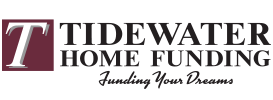When I educate people on the housing market, it’s important to start from square one. Yes, the home-buying process has many rules, laws and complexities, but home buyers also need to understand the terms that come along with the process.
As a lender who specializes in loans for millennials and other first-time home buyers, I often define critical terms for young adults. I hope you find the list below useful as you look to buy in 2017.
Mortgage payment: Monthly amount which includes principal and interest payments based on terms of the loan, interest rate and loan amount as well as real estate taxes and insurance (examples, mortgage, hazard and flood).
Escrow: An account to pay for real estate taxes and hazard insurance on the home when they come due. The funds for the account come from your monthly mortgage payment, and the lender makes the payments on your behalf.
Prepaids: Funds for both real estate taxes and hazard insurance for an escrow account, so when the funds come due they can be paid on behalf of the borrower. The funds are typically collected at the closing table. Prepaids also include daily interest incurred based on the day the loan closes in the month.
Closing costs: Other fees and costs associated with obtaining the loan and purchasing real estate not included in the sale price. Fees include city and state tax recording costs, appraisal, title company/ attorney fees and lender costs (ex: origination and administration fees).
Down payment: The first cash payment on the real estate transaction and your vested funds in the transaction. Every loan program has a different down payment requirement, which ranges from 0 percent to 20 percent of the sales price.
Mortgage Insurance: Insures the lender for any losses suffered if the borrower defaults on the payment. They are typically included in a monthly mortgage payment. There are two types of mortgage insurance, and the one you need depends on the loan type.
Private Mortgage Insurance or PMI (conventional loans): The lender cancels PMI when LTV (loan to value) reaches 78 percent or 22 percent equity in the property. Loan to value means the amount borrowed in proportion to the current market value (based on appraisal) of the property.
Mortgage Insurance Premium or MIP (FHA loans): As of January 26, 2014 all FHA loans have a 0.85 percent (of the loan amount) monthly mortgage insurance. Unlike conventional loans, MIP remains for the life of the loan.
To cancel the premium, the borrower typically has to refinance the loan and have 20 percent equity in the property.
To recap: PMI can be canceled with enough equity in the home. MIP remains for the life of the loan regardless of equity.
Keep these definitions handy as you venture into the home-buying process.
Remember: education starts with the basics.



